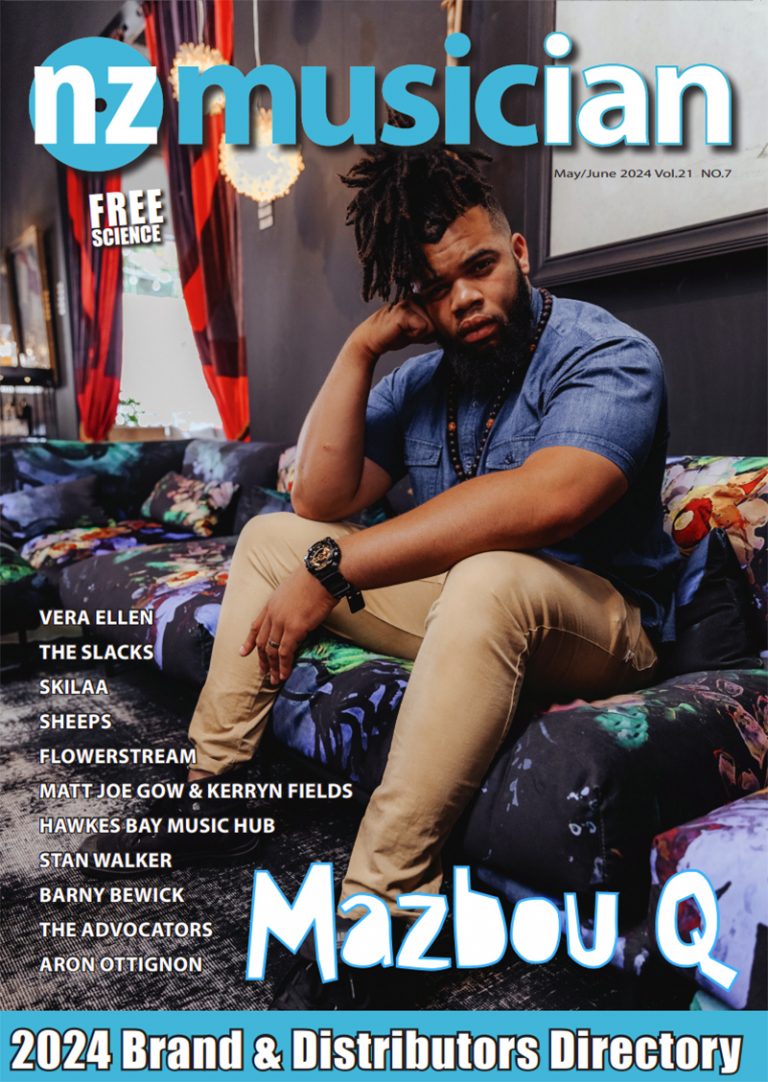The Lawful Truth: Publishing Agreements – Part 1
The Lawful Truth: Publishing Agreements – Part 1
In this Lawful Truth column and the next issue of NZ Musician, were going to be discussing the last of the major types of agreements that you commonly encounter in the music industry, Publishing Agreements.
In the work that I do with artists Publishing Agreements are, without a doubt, the least understood of all the major types of music industry contracts. In fact the majority of people dont even know what a Publishing Agreement is for – if you fall into this category, don’t worry, you are very much not alone!
One of the key reasons that Publishing Agreements seem to fly under the radar for many is probably the fact that they are not widely talked about in the popular media, or at least not nearly as much as Recording Agreements. Also they are only going to apply to you if you are actually a songwriter, as opposed to being a non songwriting member of a band.
So what is a Publishing Agreement exactly? Essentially it is an arrangement under which a songwriter provides to someone else (a music publisher), the rights in the songwriter’s songs, for a certain period of time, to enable that other person to seek out paying opportunities for the use of those songs. More simply, you get a specialist to help you find different ways of making money out of the use of your music.
With the decline in the sales of recorded music in recent years, such other means of earning income from the work you do are, of course, increasingly important. There is also a variation on the traditional Publishing Agreement, called an Administration Agreement, which well be looking at in more detail in a future edition of The Lawful Truth.
The publishing industry has changed a lot over the years, and today getting your music placed in films, TV programmes, adverts and even video games is likely to be one of the most profitable sources of income a publisher can arrange. For certain artists, having other people perform cover versions of their songs or just getting the opportunity to co-write with other artists can also be very remunerative, and something else which publishers can in some cases facilitate. Another key service a publisher will provide is diligently following up the collection of all money due to you from the uses of your music, and chasing any unauthorised use.
What are the key legal issues that you should be aware of in these agreements? As with Management and Recording Agreements, one of the first aspects to be aware of is defining how long the agreement is in force for. These days you would expect to see a Term of somewhere around the 8-12 year mark for a standard Publishing Agreement with a specialist publisher.
However a key issue to be aware of is that Publishing Agreements will usually also provide for a retention period. In the retention period following the end of the main Term of the Agreement, you can do what you want with the new material you write, but the songs that were under the control of the Publisher during the Term will continue under the control of that publisher for a further period of time – usually the same length again as the original Term was. This can mean that overall the Publisher will have rights in your songs for a considerable part of your career.
It’s important to understand that during the Term, a Publishing Agreement will cover all of your songwriting activities, no matter what band you play in or solo work you do. In other words, the publisher will have just as much right to control and exploit your solo or side project songwriting work, as it does with say the primary band you play in that initially got them so interested in your songwriting.
Another key legal issue to be aware of is the conditions that have to be satisfied before any advances due will be paid to you by the publisher. Usually the payment of advances will be tied to the delivery of a specific number of songs of which you are the sole or majority songwriter, and also that these songs are commercially released on an album.
It is also very important to make sure that the way in which the publisher can look to use your music is clearly defined. There may well be certain uses that you will require the publisher to get your specific approval for first, such as the use of your music in adverts or in film and TV programmes.
In the next issue that well be continuing this discussion of Publishing Agreements and consider some of the other key legal terms involved that you should also be aware of.
David McLaughlin is a specialist music lawyer with Auckland law firm McLaughlin Law (www.mclaughlinlaw.co.nz).
Disclaimer: This article is intended to provide a general outline of the law on the subject matter. Further professional advice should be sought before any action is taken in relation to the matters described in the article.

